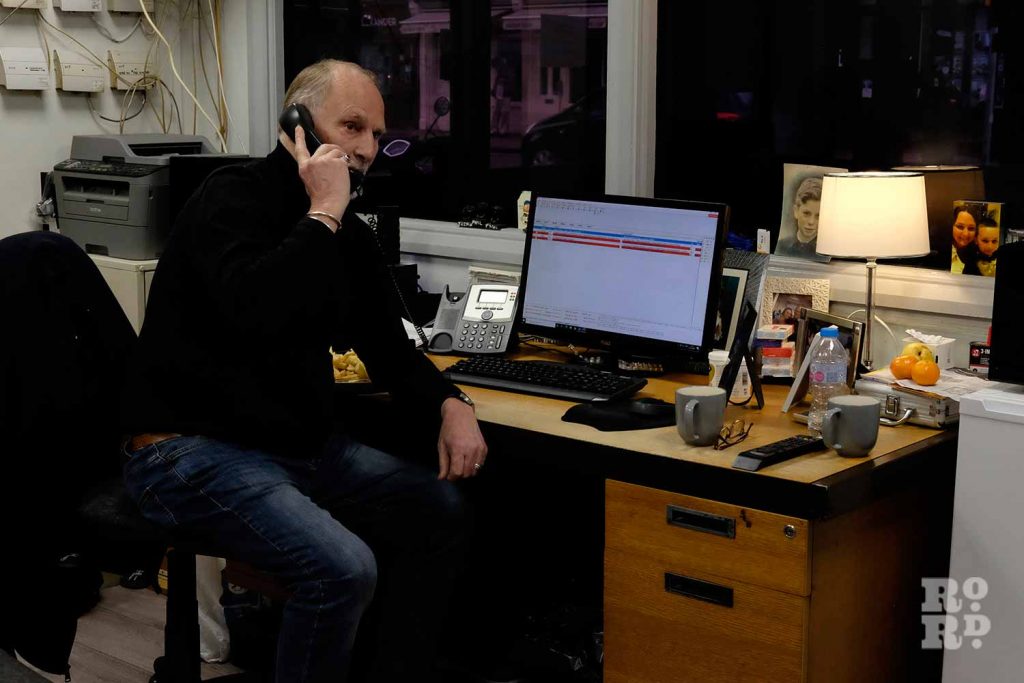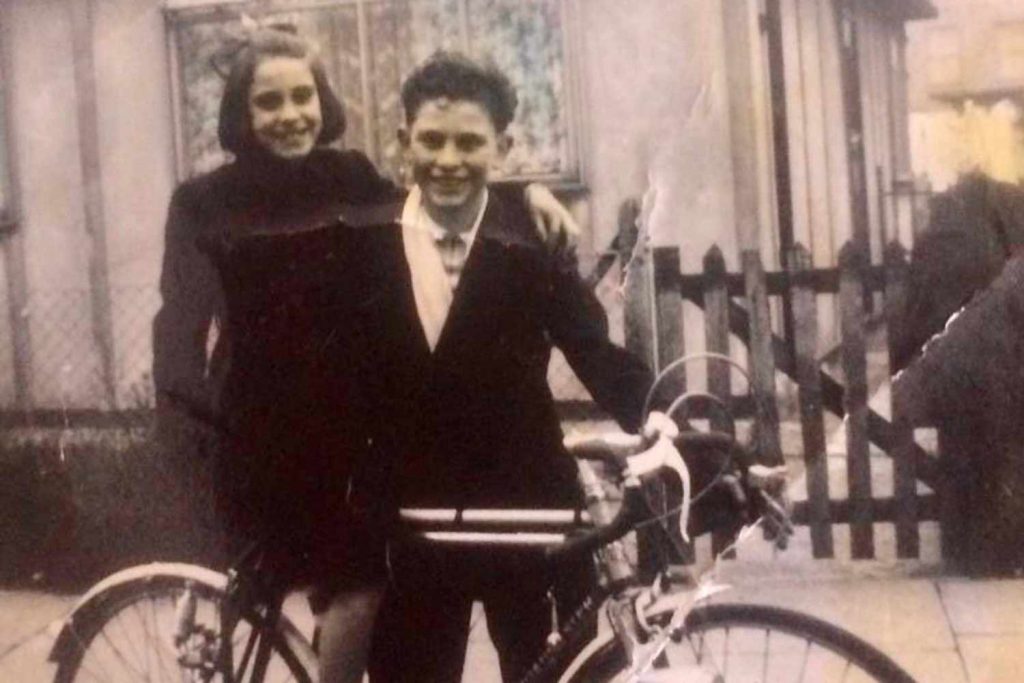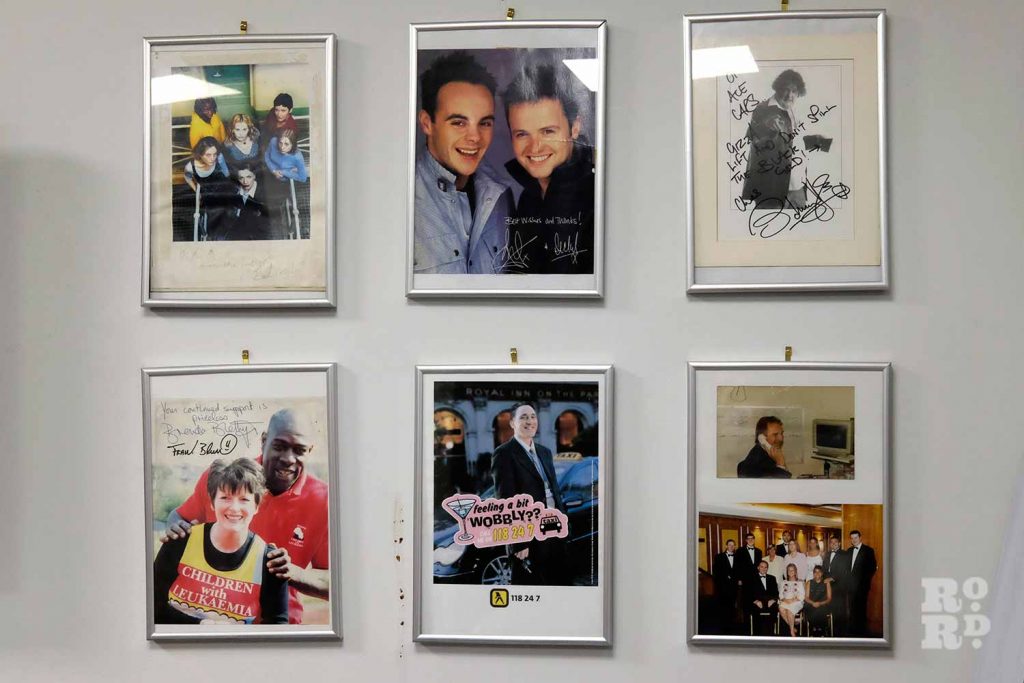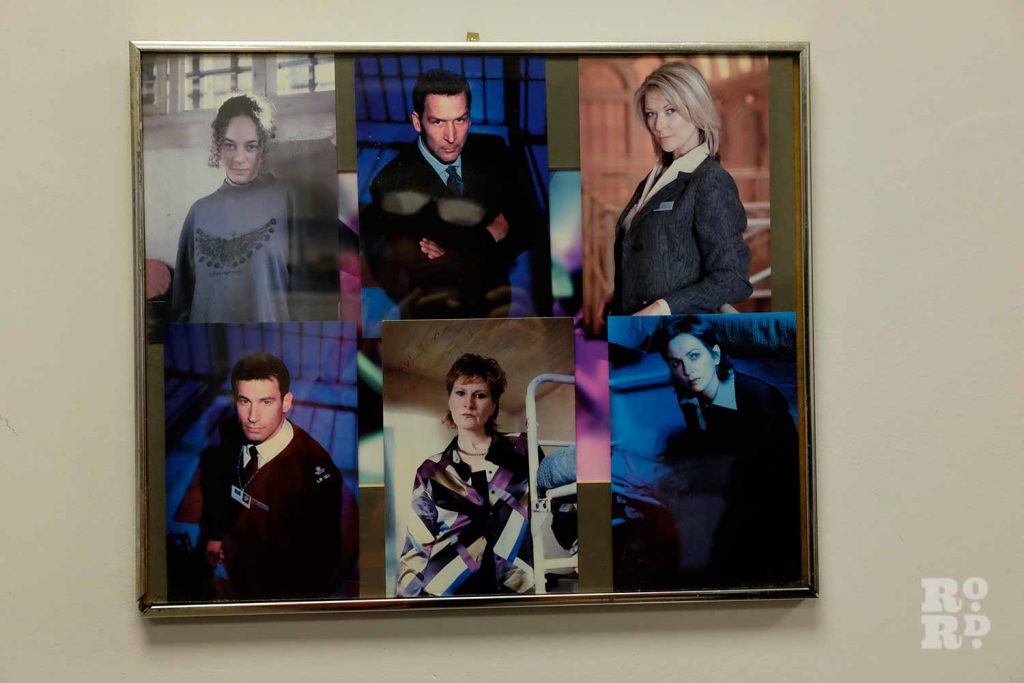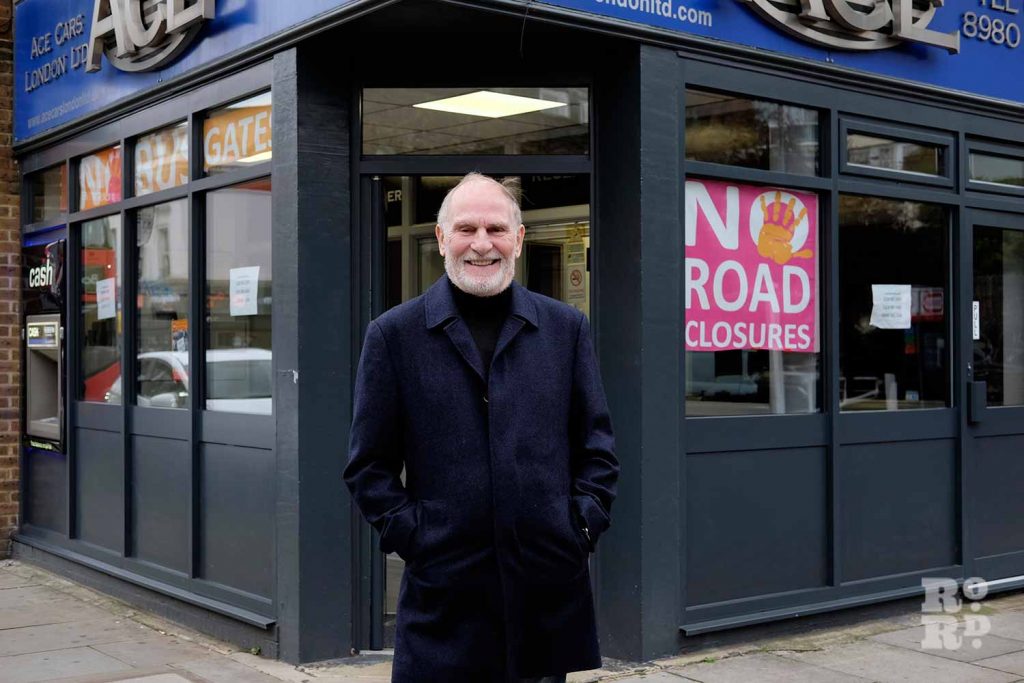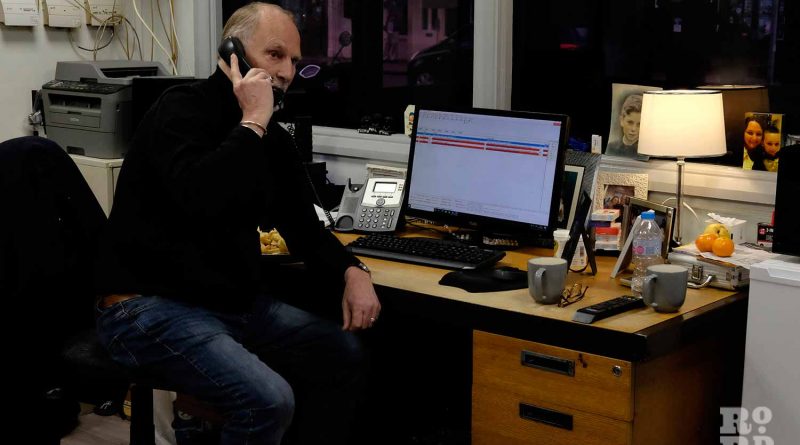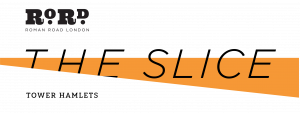Pre-fabs and pub life: the story of Ace Cars’ Phil Price
Even if you don’t know Phil Price, you will be familiar with the glossy blue and white sign of his minicab office, Ace Cars, near the traffic lights at the Roman Road Market entrance, and you may well have ordered a cab from him. After all, this company has been on Roman Road for about 40 years.
Born during the latter years of WWII and growing up in the Mile End pre-fabs, he has seen the East End change and evolve beyond recognition.
From the vibrant days of the exploding local pub culture to driving around the who’s-who of East End celebrities (‘Barbara was very nice and chatty, but she was very drunk,’ he says), it becomes clear that the story of Phil Price is the story of the East End itself.
It was the 1990s and Price’s mini cabbing company, Ace Cars, was booming. He started the company in 1982, first operating on the opposite side of the street where the betting shop ‘Betfreds’ now lies before moving to this current location next to the car park.
Everyone who was someone in the East End knew to use Ace Cars. Price had a contract in the film studios at Three Mills, driving actors and celebrity guests from shows like the Big Breakfast (which operated out of the Lockkeepers House in Bow) and Bad Girls.
‘I once drove Barbara Windsor and her husband, Scott, to a musical in Central London’, he says. ‘She was so nice and chatty but she was also very drunk. Scott promised me he’ll send an autographed photo.’
Price thought he was simply being polite, but a few days later, a signed photo of Windsor arrived. ‘Barbs X’ was written in a large flamboyant scrawl over a headshot.
With pride, he pulls out the photo from a drawer underneath the desk in his office where we are conducting this interview. The desktop itself is littered with photos of his sons and grandsons.
‘It was funny,’ he says, looking at the signed photo with a smile. ’She spoke in a posh accent, but after she had a few drinks in the car she went back to her native Cockney.’
‘The photo of Windsor is only the topmost of a pile of signed photos in the large drawer; the extensive collection of celebrities Ace Cars has driven.’
His office walls contain even more photos. There hangs the entire cast of the 2000s show ‘Bad Girls,’ and a smiling Johnny Vegas (‘he was really nice,’ says Price).
That darkened office room (made for sleeping for those doing night shifts) next to the Roman Road car park is an extension of Phil Price himself.
Price is a patchwork of stories and memories of an East End that sounds mythical to those who were not there themselves.
Born during the latter years of WWII, some of his earliest memories are the constant drones of warplanes flying overhead towards mainland Europe. ‘But’ he says, ‘I was too young to actually know what they were. It was more my mum that had to deal with that fear.’
After his first home in a tiny dwellings apartment in Whitechapel, he spent most of his youth living in the Mile End prefabs where the Eco Pavilion now stands that were erected as temporary housing after the war.
The prefab housing no longer exists as they were only supposed to temporarily accommodate those affected by the war. He lived there from the 1940s until they were finally demolished in the late 1970s.
He speaks of that period in his life as the golden years, not only for Price, but for the East End nightlife.
He describes how there was a pub practically around every corner, each known for its different type of act or music performance.
‘There was a pub called The Aberdeen; they did really incredible drag acts. Another one, the Ordell Arms, and they would have music acts on every weekend.’
Did he ever frequent The Palm Tree? After all, his old house on Lessada Street in the pre-fabs used to be opposite this long standing pub.
‘Oh no,’ he says with a glimmer of amusement. ‘That wasn’t where the fun was at because they didn’t have any music acts on in that time, you see.’
Even after moving out of the pre-fabs and starting his own minicabbing company in the 1980s, Price was still a social butterfly. He loved the banter with his passengers when he was driving, and then having a night out at a pub during his time off.
He remembers how his mum and sister would dress up in their Sunday finest to go down the Roman. ‘It was normal back then for women to wear their best hats and dresses to go down the market.’
Would he join them? ‘I would be day drinking at the pub, at The Albert.’
In fact he says the pub scene here was so well known that it would be normal to see celebrities in them, local or otherwise.
‘There was this pub called The Unicorn on Vivian Road where you would see the guys who played for West Ham. Once I saw Harry Redknapp, Bobby Moore and Sean Connery there at the same time.’
‘I didn’t get their autographs,’ he says. ‘Even if you were their biggest fan, and I was, you wouldn’t bother them if they were just having a drink.’
Much like Price, our pubs are now enjoying a quieter life. They still have the ambient buzz of neighbourhood residents having a drink after work (pandemic notwithstanding), but those wild scenes of drag shows and celebrities seem a whole world away.
In fact, a couple of decades later in the 90s, when Redknapp would return to West Ham as a manager, Price would get to meet his hero. After driving Redknapp as a passenger, he gave Price tickets to a home game match.
‘I couldn’t remember who they were playing at the time.’ He looks off in the distance, as he does every so often when he tries to retrieve a particular detail from his trove of memories.
‘Harry was so friendly; he gave tickets and a pass for me and my grandson to meet the team!’
On the day of the match, when they were driving to Boleyn Ground, disaster struck. ‘My car overheated. And by the time we managed to fix it, the match had already started so we didn’t get to meet the team!’
Price doesn’t seem bitter, more amused. Then the arrival of a low murmur of some drivers in the room next door brings us out of his memories, and back into the dark office of Ace Cars, bathed in the soft blue light of his computer screens.
A more somber look crosses his happy-go-lucky features.
‘You know, back then, the guys [who were his drivers] would have to beg me for a break because we were so busy. Now, it’s been hard, especially recently. Back then, you wouldn’t hear them standing around talking like this.’
It has not been easy for independent cab drivers, who have taken a hit from apps like Uber, and now face an even quieter shop with the pandemic.
‘It’s difficult because there isn’t anything filming [at Three Mills] and no one’s going anywhere.’
But he still has his long-term customers who remain loyal to Ace Cars. ‘There was a lady here earlier, she’s been with us for about 20 years. She has a daughter now who’s a teenager, I’ve seen her around here too.’
Having hung up driving and now managing his company, he misses being behind the wheel but he is still a well-known face in local circles with a quieter, but still fulfilling social life.
‘Oh yeah I still like having a pint at The Albert with the guys; Lord Morpeth, that’s a good one. We still talk about West Ham and that sort of thing.’
‘I mean,’ he hesitates, ‘not recently because there hasn’t been much football to talk about recently!’
Much like how the vibrancy of the East End nightlife has changed into something calmer, Phil Price is enjoying the quieter life of later years. But those memories of Harry Kednapp and the wilder days still lurk within the walls of the local pubs, cafes and restaurants where it all happened, and within the memories of those who lived them.
If you like this article you might also enjoy seeing these black and white pictures of the Victoria Park Model Steam Boat Club.
